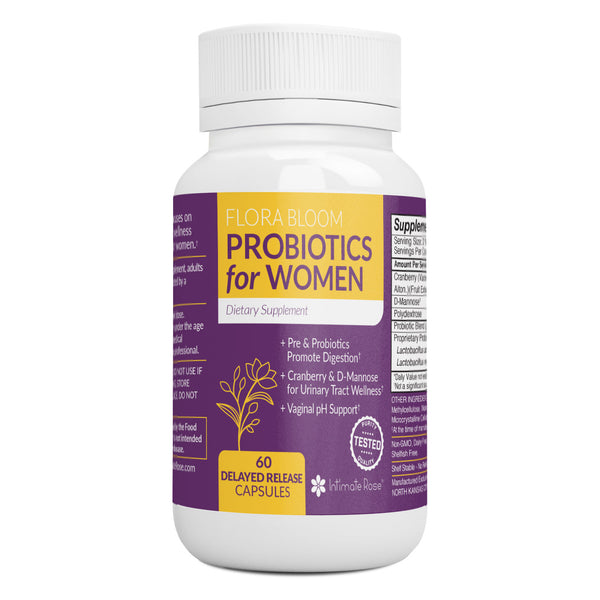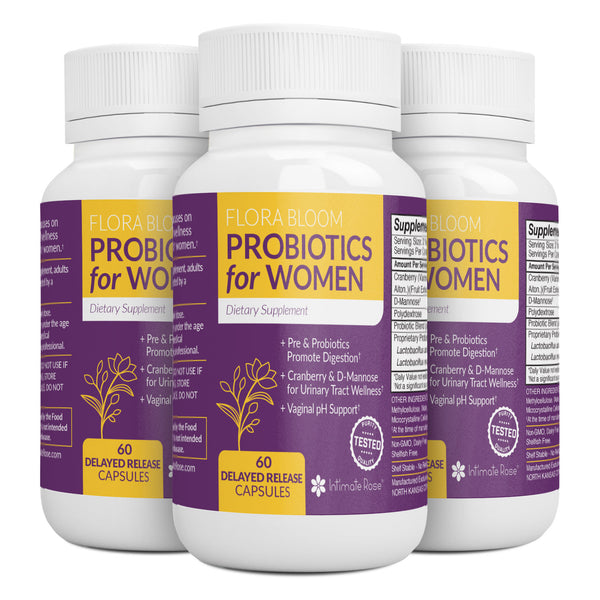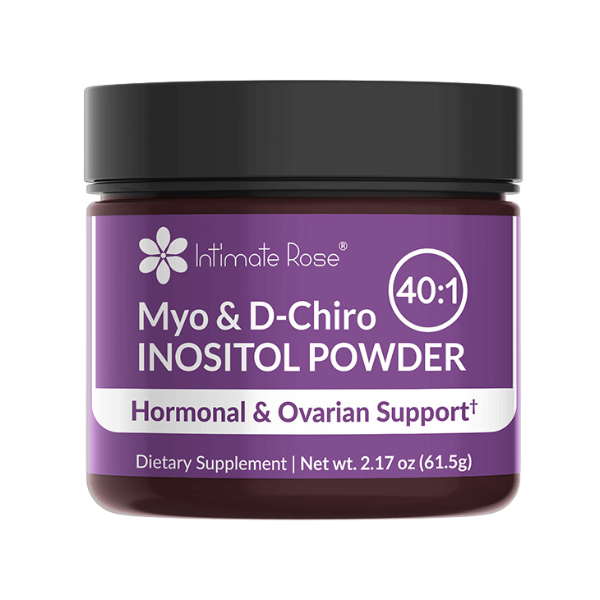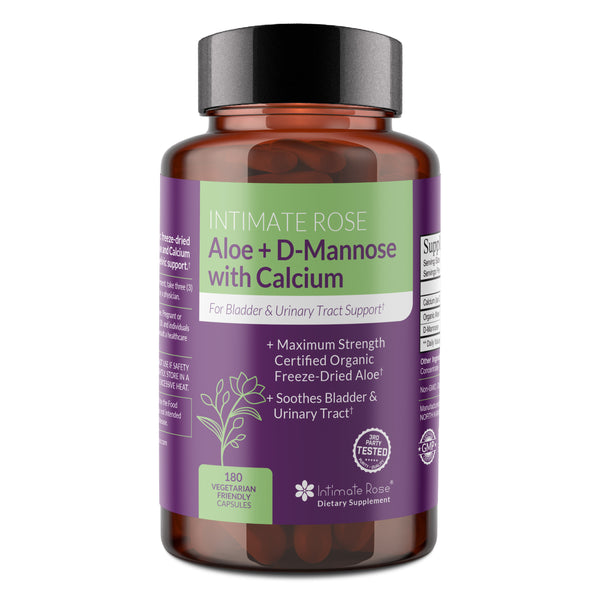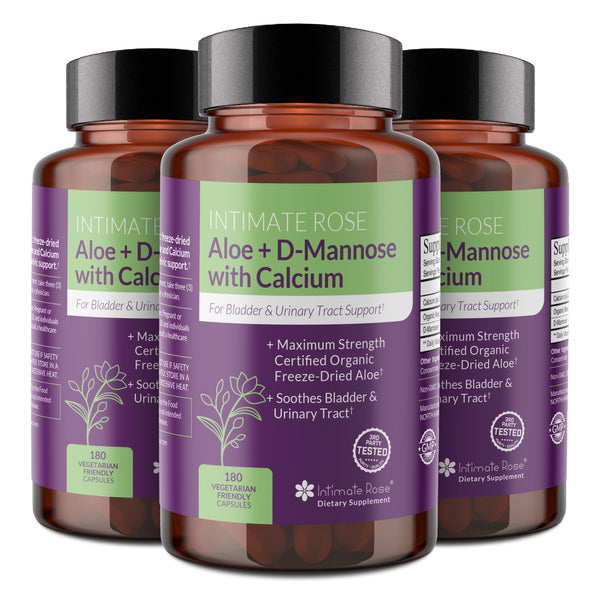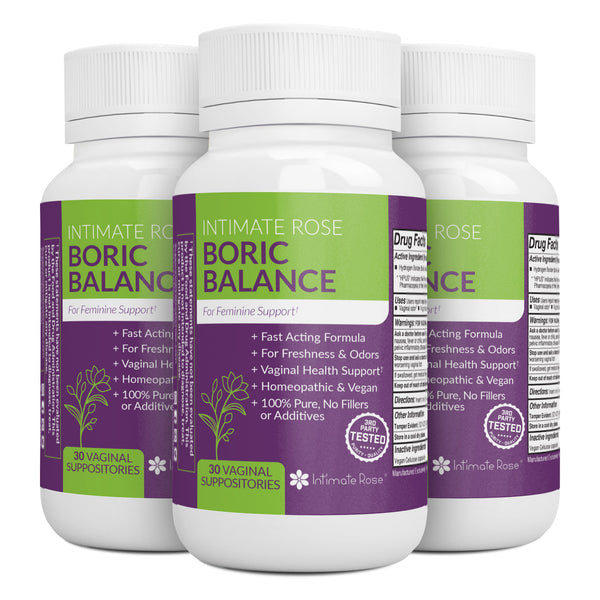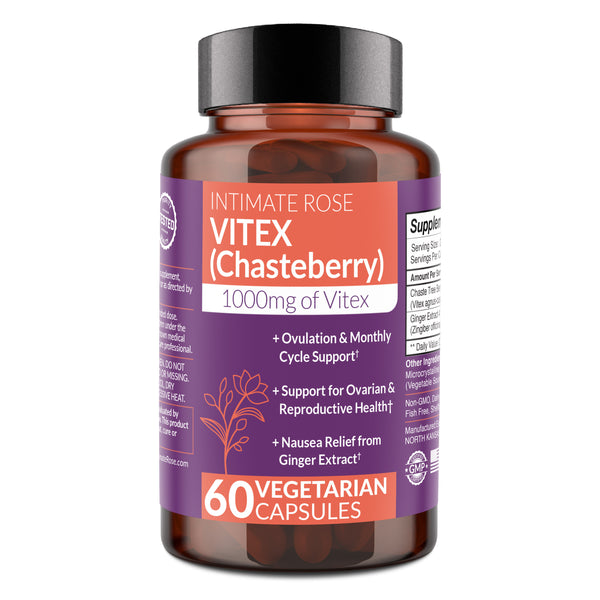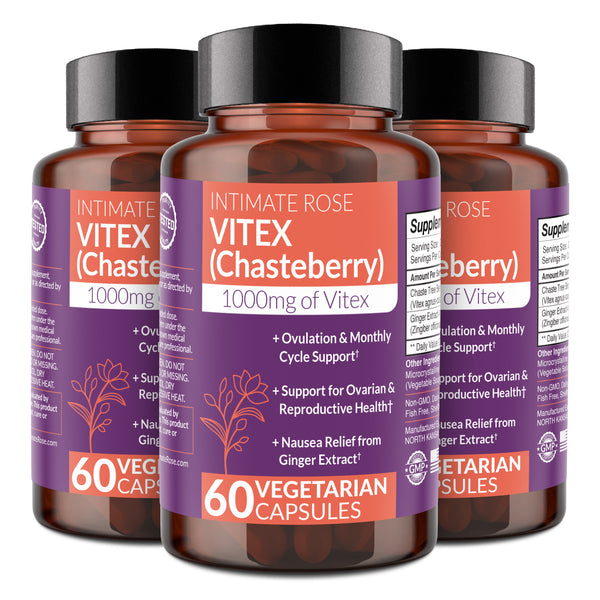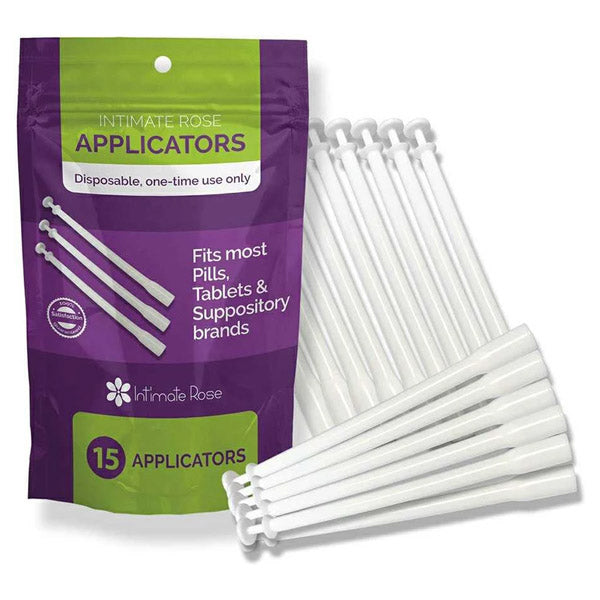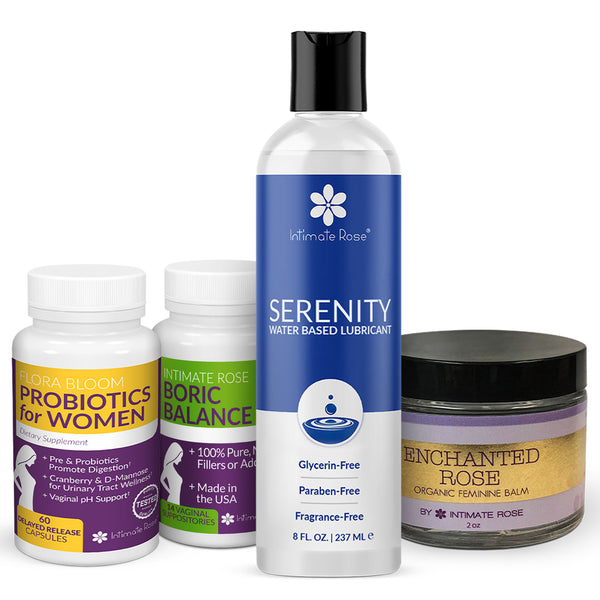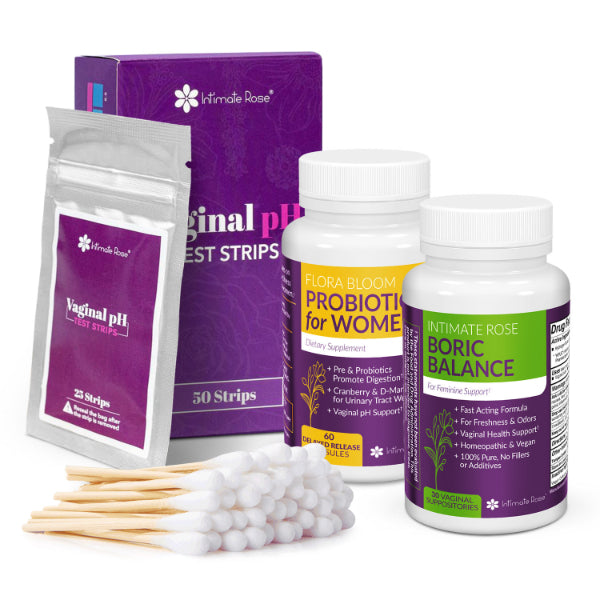You may have heard of a supplement called inositol and its variety of purported health benefits, from regulating female hormones to changes in mood or insulin sensitivity.
But what is inositol, and is it worth taking despite its side effects? We looked into the research for you to answer these questions.
Things Off Down There?
What is Inositol?
Inositol is a natural sugar that you probably already have in your diet. The most common form of inositol, myo-inositol, can be found in your diet via fruits, nuts, grains, and beans (Clements & Darnell, 1980).
It can mimic the role of insulin, meaning that even those with insulin resistance may be able to better process sugar.
Myo-inositol is commonly sold as a supplement, particularly when paired with its cousin, D-chiro-inositol. Let’s talk about why...
Inositol benefits
While you can get a small amount of inositol from your food, studies have shown that a greater concentration of myo-inositol has a number of health benefits. When combined with D-chiro-inositol in a 40:1 ratio,
You will often find myo-inositol and D-chiro inositol sold in a supplement together in a 40:1 ratio; one study of this combination in rats with signs of polycystic ovarian syndrome (PCOS) found that this ratio of supplement caused “a quick and almost complete recovery from PCOS signs and symptoms” (Bevilacqua, Dragotto, Giuliani, & Bizzarri, 2019).
Similar benefits have been found in humans with PCOS. One study examined 46 obese PCOS patients and gave them either a placebo or 40:1 myo- and D-chiro-inositol treatment for six months.
When the trial was over, they found significant improvement to the inositol group’s insulin sensitivity, a decrease in the male hormones associated with acne and facial hair in PCOS patients, and improved markers for ovulation (Benelli, Del Ghianda, Di Cosmo, & Tonacchera, 2016).
As insulin resistance, hyperandrogenism, and infertility are three of the biggest factors contributing to PCOS symptoms, an improvement across these metrics can significantly improve the quality of life of those with PCOS!
The benefits don’t stop at PCOS, however. The insulin-mimicking properties of inositol have also been shown to prevent or maintain gestational diabetes (Griffith et al, 2020), and while more studies are needed, early research suggests a possible improvement in metabolic syndrome (Giordano et al, 2011), in reducing blood sugar in patients with type 2 diabetes (Pintaudi, Di Vieste, & Bonomo, 2016), and in mood disorders such as depression, anxiety, and OCD (Levine, 1997).
How does the Inositol supplement work?
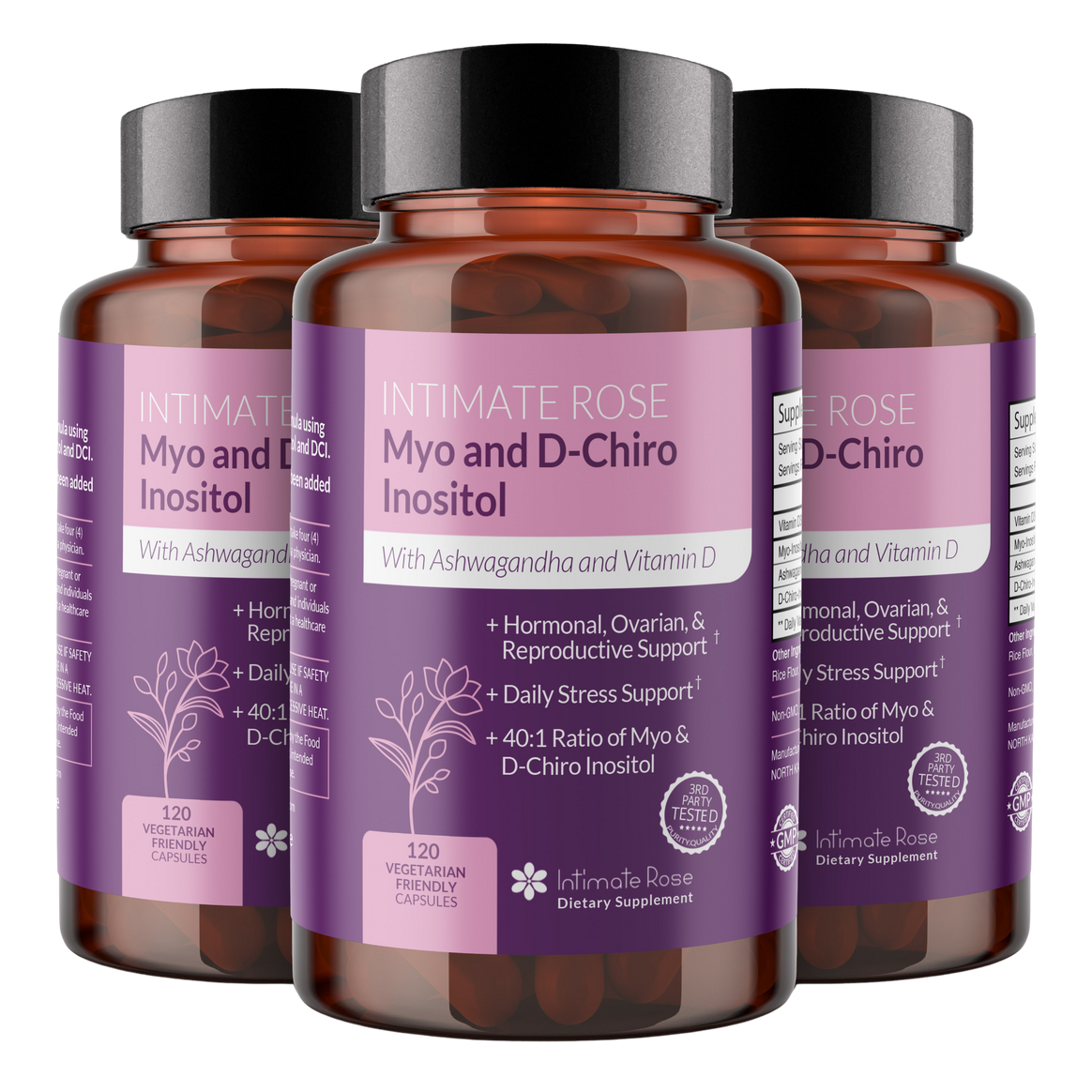
Inositol side effects
The Food and Drug Administration has determined that inositol is generally safe, even for use during pregnancy (FDA, 2020). But that does not mean it is without risk.
A research review covering more than 250 patients found that myo-inositol taken at a rate of 12-30g per day was associated with the following gastrointestinal side effects (Carlomagno, & Unfer, 2011):
- Nausea
- Flatulation
- Loose stools
- Diarrhea
Another study of inositol safety found these additional side effects at doses of 12g per day (Formoso et al, 2019):
- Dizziness
- Fatigue
- Headaches
However, 12g of inositol is usually a higher dose than most clinicians recommend. The Carlomagno & Under review goes on to note that “the dosage of 4 g/day of inositol commonly used in clinics is completely free of side effects.”
Conclusion
Inositol has shown potential in treating insulin sensitivity and has positive effects for fertility and hyperandrogenism in PCOS patients. But are the potential benefits of inositol worth the potential side effects?
While no supplement can be considered 100% safe, all our research to date shows that inositol is generally very safe, even during pregnancy. If you want to avoid uncomfortable side effects, make sure you take less than 12 g per day.
More than that may still be safe, but it may also come with some gastrointestinal problems like nausea and diarrhea, in addition to headaches, dizziness, or fatigue.
If it sounds like inositol supplements might be right for you, make sure you talk to your doctor and/or OBGYN before taking this or any other supplement, particularly if you are taking other medication concurrently. And if you start to experience any of these side effects, talk to your doctor about lowering your dose.
References
- Clements Jr, R. S., & Darnell, B. (1980). Myo-inositol content of common foods: development of a high-myo-inositol diet. The American journal of clinical nutrition, 33(9), 1954-1967. https://doi.org/10.1093/ajcn/33.9.1954
- Bevilacqua, A., Dragotto, J., Giuliani, A., & Bizzarri, M. (2019). Myo‐inositol and D‐chiro‐inositol (40: 1) reverse histological and functional features of polycystic ovary syndrome in a mouse model. Journal of cellular physiology, 234(6), 9387-9398. https://doi.org/10.1002/jcp.27623
- Benelli, E., Del Ghianda, S., Di Cosmo, C., & Tonacchera, M. (2016). A combined therapy with myo-inositol and D-chiro-inositol improves endocrine parameters and insulin resistance in PCOS young overweight women. International journal of endocrinology, 2016.
- Griffith RJ, Alsweiler J, Moore AE, Brown S, Middleton P, Shepherd E, Crowther CA (2020). Interventions to prevent women from developing gestational diabetes mellitus: an overview of Cochrane Reviews. Cochrane Database of Systematic Reviews 2020, Issue 6. Art. No.: CD012394 https://doi.org/10.1002/14651858.CD012394.pub3
- Giordano, D., Corrado, F., Santamaria, A., Quattrone, S., Pintaudi, B., Di Benedetto, A., & D'Anna, R. (2011). Effects of myo-inositol supplementation in postmenopausal women with metabolic syndrome: a perspective, randomized, placebo-controlled study. Menopause, 18(1), 102-104 https://doi.org/10.1097/gme.0b013e3181e8e1b1
- Pintaudi, B., Di Vieste, G., & Bonomo, M. (2016). The Effectiveness of Myo-Inositol and D-Chiro Inositol Treatment in Type 2 Diabetes. International journal of endocrinology, 2016, 9132052. https://doi.org/10.1155/2016/9132052
- Levine, J. (1997). Controlled trials of inositol in psychiatry. European neuropsychopharmacology, 7(2), 147-155. https://doi.org/10.1016/S0924-977X(97)00409-4
- FDA (Food And Drug Administration Department Of Health And Human Services) (2020). Subchapter B‐‐Food For Human Consumption; Sec. 184.1370 Inositol. https://www.accessdata.fda.gov/scripts/cdrh/cfdocs/cfcfr/CFRSearch.cfm?fr=184.1370.
- Carlomagno, G., & Unfer, V. (2011). Inositol safety: clinical evidences. Eur Rev Med Pharmacol Sci, 15(8), 931-936. https://vittoriounfer.it/wp-content/uploads/2016/04/Inositol-safety-clinical-evidences.pdf
- Formoso, G., Baldassarre, M., Ginestra, F., Carlucci, M. A., Bucci, I., & Consoli, A. (2019). Inositol and antioxidant supplementation: Safety and efficacy in pregnancy. Diabetes/metabolism research and reviews, 35(5), e3154. https://doi.org/10.1002/dmrr.3154

Things Off Down There?




